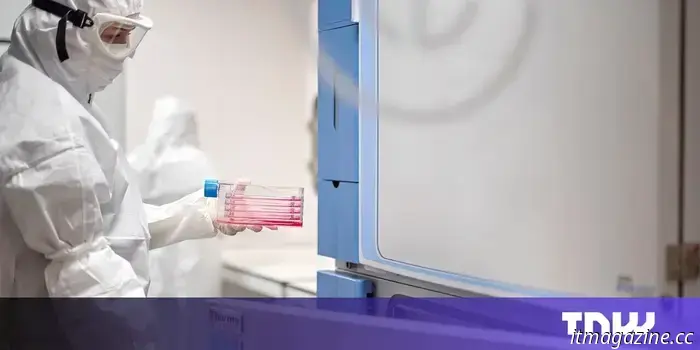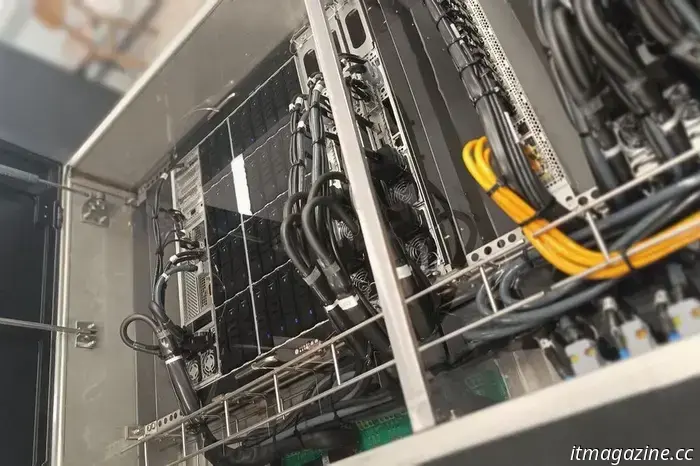
Stem cell startup announces an 'inflection point' for medicine as it approaches mass production.
It’s harvest day at the Karolinska Institute in Stockholm. While sunshine illuminates the verdant university campus, scientists in the laboratories work under cool fluorescent lights. Dressed in green protective suits, they carefully tend to test tubes within hermetically sealed cleanrooms. The containers hold the results of today’s work: mesenchymal stem cells (MSCs).
Each cell is just a fraction of the width of a human hair but possesses remarkable capabilities. MSCs can reduce inflammation, repair damaged tissues, and regulate the immune system. They have the potential to treat chronic illnesses and slow down the ageing process. They might even prevent diseases before they arise. However, for MSCs to become a staple in modern healthcare, they need to be produced on a large scale in a cost-effective and dependable manner.
This goal seemed far-off until recently, but scientists at Karolinska believe it is now within reach. They are collaborating with Cellcolabs, a Swedish startup established to address the global shortage of stem cell therapies.
Cellcolabs is optimistic that this shortage can soon be resolved. With a combination of scientific, regulatory, and technological advancements, MSCs are on the path to entering the consumer market. Within the next ten years, Cellcolabs aims to decrease prices by up to 90%.
The achievements in the lab are noteworthy. The latest harvest — derived from a single donation — has produced 4.1 billion cells, sufficient for up to 200 standard doses.
Cellcolabs CEO Dr. Mattias Bernow is in an optimistic mood. The 43-year-old views today’s cultivation as merely a glimpse of what lies ahead.
“I genuinely believe we’re at a pivotal moment in the history of medicine,” he states.
The power of MSCs
MSCs naturally occur in the body, with a typical human housing billions of them. They function like a repair team, addressing and fine-tuning internal conditions. They can also be extracted, multiplied, and converted into medical therapies.
The Karolinska Institute was the site of one of the field’s significant breakthroughs. In 2012, its Nobel Assembly awarded the Nobel Prize in Physiology or Medicine to John Gurdon and Shinya Yamanaka for discovering that mature cells could be reverted to a pluripotent state, enabling them to become nearly any cell type in the body. This discovery revolutionized regenerative medicine, facilitating new regulatory momentum and accelerating stem cell treatments.
MSCs are among the most promising examples. When injected, they release signals that promote healing. The body subsequently initiates its own repair processes.
They can address a multitude of conditions, from arthritis and heart disease to immune disorders. However, a small sample must first be extracted from a living donor.
Cellcolabs obtains its MSCs from the bone marrow of healthy individuals aged 18 to 30. A mere 50 milliliters — approximately the volume of a shot glass — can yield up to 200 doses, and the marrow naturally regenerates in six to eight weeks.
The donation process is quick and minimally invasive, but mass production is notoriously challenging. MSCs are living cells that require intricate biomanufacturing, careful handling, and strict quality assurance, making scaling a daunting endeavor.
Despite this, Cellcolabs envisions large-scale production on the horizon, largely due to the innovative research of Professor Katarina Le Blanc.
Le Blanc’s groundbreaking work demonstrated that MSCs could address inflammatory and immune diseases. Her findings also established that donated cells were appropriate for therapeutic use — a vital step towards commercialization.
She helped establish production standards for clinical-grade MSCs, paving the way for extensive trials and broader therapeutic applications. Her research laid the groundwork for Bernow’s pivotal moment.
“This isn’t brain surgery or rocket science, but it involves stem cells — so it’s quite intricate,” he remarks. “It’s very complex. The only reason we can proceed at such a rapid pace is due to Professor Le Blanc’s research.”
As a haematologist, Le Blanc investigated the potential of MSCs to assist blood cancer patients. Her initial clinical work focused on graft-versus-host disease, a serious and frequently lethal complication of bone marrow transplants. In a small trial, her team administered MSCs to patients unresponsive to standard treatments, yielding striking results: over half the participants survived. “The entire field just exploded,” Bernow recalls.
Le Blanc kept pushing into uncharted territory. One trial successfully repaired vocal cords, enhancing speech with minimal scarring. Another study involved MSCs in COVID-19 patients to reduce inflammation, yielding promising results — but she encountered a barrier. “She ran out of cells,” Bernow comments.
Scaling up became a new priority. To broaden treatment availability, Le Blanc co-founded Cellcolabs in 2021. Two years later, the Karolinska facility received production approval.
Production costs have plummeted since then, leading to aspirations of a tenfold cost reduction. As prices decrease and output


Stem cell startup announces an 'inflection point' for medicine as it approaches mass production.
Swedish biotech company Cellcolab is nearing a commercial scale for its stem cell therapies, marking a significant milestone that could revolutionize medicine.

